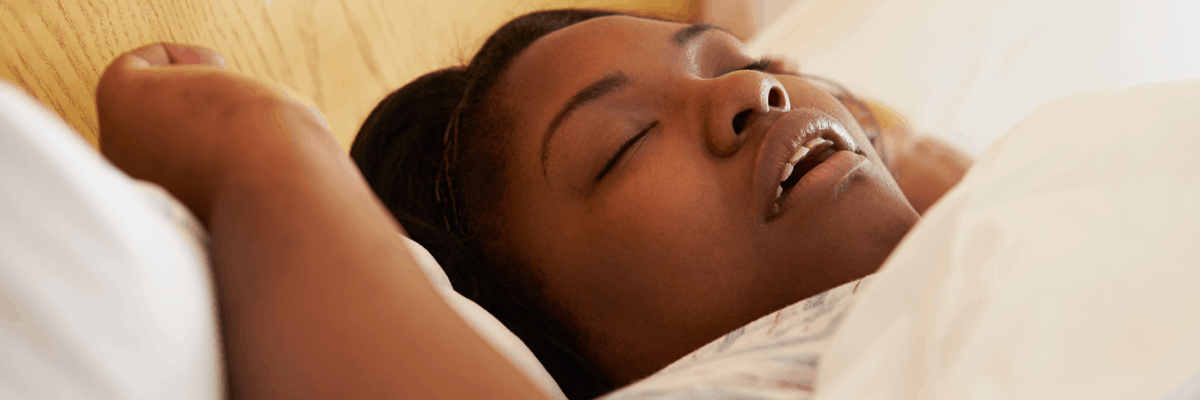If you’re convinced that your snoring is getting worse with age, you’re not imagining things. A study has found that around 58% of snorers are aged between 50-59 – and yet many people are surprised that menopause can trigger the night-time noise.
In a recent YouGov survey by Snoreeze, only 3% of men believed their partner snored because of menopause, compared to 12% of women aged 45-54.
Here are 3 reasons why the menopause can cause snoring:
- Your hormones are changing. Hormonal changes often cause snoring, or make snoring worse. Menopausal women are also more at risk of developing sleep apnoea. Estrogen and progesterone maintain the airway’s muscle tone, and keep it from collapsing. As hormone levels drop, the risk of sleep apnoea (where the airway closes up completely) increases.
- Your muscle tone is decreasing. As you get older, you get decreased muscle tone all over your body, including your throat. This means you might not have the muscular tension needed to keep your airway open properly during the night.
- You’ve put on weight. The pattern of weight gain changes as we get older, and we often gain weight around the neck. This makes your airway narrower when you’re lying down at night, making it harder to breathe properly.
How do you treat snoring?
Women often feel embarrassed about an issue that’s usually considered a ‘man’s problem’. But snoring is very common in women; it often arises during pregnancy and menopause.
There are many options you can try that will help treat snoring. Simple lifestyle changes can make a difference, such as exercising if you’re overweight, or cutting out alcohol or cigarettes. Snoring relief products can also help. Different products treat different types of snoring, so you should try to work out what type of snorer you are first.
Everyday snoring
When you sleep, your airway structure and soft tissues relax. This tissue then dehydrates and vibrates when you breathe, causing snoring.
For this type of snoring, try the Throat Spray, Oral Strips or Lozenges.
Snoring with congestion
Cold and allergies like hay fever are a common cause of snoring. When you have a cold (or allergic reaction), your nasal tissue swells causing airflow through the nose to be blocked or restricted. This narrows your airway so the air you breathe travels faster, further dehydrating the tissue. This may force you to breathe through your mouth, leading to a dry mouth and snoring.
If this sounds familiar, the Nasal Spray or Nasal Strips could work well for you.
Loud snoring and OSA
It’s also important to look for signs of obstructive sleep apnoea (OSA) if you snore. While simple snoring is your throat narrowing, sleep apnoea closes it up completely for around 10-30 seconds at a time. Look out for: daytime sleepiness, gasping/choking in the night, headaches and insomnia.
You should always visit your doctor if you suspect you have OSA, as they’ll be able to recommend the best treatment for you. A CPAP machine is often recommended by doctors for sufferers of sleep apnoea. This helps increase air pressure in the throat so the airway doesn’t collapse.
Another option for treating mild OSA is an oral device. This holds your jaw in the right position while you sleep, opening your airway and helping you breathe easily. The Snoreeze Oral Device is a great treatment option. Easily moulded at home, this boil-and-bite mouth guard is fully adjustable and offers a secure, comfortable fit.
World Menopause Day takes place on 18th October 2019. For treatment recommendations and more information about snoring, click here.

